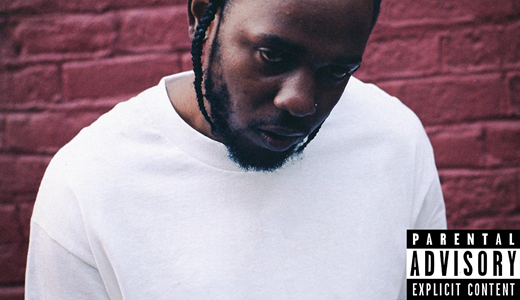Rock is dead. Rap reigns.
So say music charts, YouTube views, Spotify play lists and Washington Post contributor Marc Weingarten. His opinion piece yesterday, “Sorry, rock fans. Hip-hop is the only genre that matters right now,” unpacks the significance of rapper Kendrick Lamar winning this year’s Pulitzer Prize for music. Though rock fans may be loath to admit it, it’s hard to argue against the evidence. Weingarten writes,
No one who has heard Kendrick Lamar’s stunning album D–n could be at all surprised that it is the first nonclassical or jazz recording to win a Pulitzer Prize. More than that, it is further proof—if any is still needed—that American culture has at last fully moved beyond the hegemony of rock-and-roll and the electric guitar-driven sound that dominated 60 years of popular music. … Hip-hop has also become the musical soundtrack of millennials’ lives.
Then again, that’s assuming people are really listening to music at all these days. Who has time to listen when we have so much stuff to watch? We hardly go a week without an article about our collective compulsivity when it comes to screens. This week’s edition focuses—for once—not on children or Millennials but on GenXers as the biggest screen addicts.
Meanwhile, Gizmodo suggests that conscientious parents trying to monitor their teens’ screen usage may perhaps be doing more harm than good, depending upon how they go about it. The title of Ed Cara’s article delivers that message bluntly: “Teen Monitoring Apps Don’t Work and Just Make Teens Hate Their Parents, Study Finds.”
The study in question was conducted by researchers at the University of South Florida. Senior author Pamela Wisniewski, an assistant professor of engineering and computer science there, told Gizmodo, “The takeaway here is that parents should not treat parental control apps as a magic bullet to keep their teens safe online.” She also emphasized that technology can never take the place of good old-fashioned relationship-building: “If they use the apps as a tool to supplement positive parenting practices, not to take the place of them, then these apps could be beneficial. However, they should not be used as a ‘set it and forget it’ solution because they are imperfect and cannot replace talking with our children and teaching them how to engage with others online meaningfully and safely.”
Academics elsewhere this week released yet another study correlating excessive smartphone use to a host of negative outcomes, namely anxiety, loneliness and depression.
That said, I wouldn’t expect a mass exodus from screens or entertainment. Disney certainly has no such expectations, this week ponying up a cool $52.4 billion for most of 21st Century Fox (pending an antitrust review by the Justice Department). The New York Times parses the significance of Disney’s move, saying, “With this deal and the wealth of movies, TV shows and sports programming it provides, the company will now have the muscle to challenge Netflix, Apple, Amazon, Google and Facebook in the fast-growing realm of online video.”
Not everyone is so crazy about streaming these days, though. Like, say, the rule makers at the prestigious Cannes Film Festival, who’ve decided that movies that don’t screen in French theaters won’t be eligible to enter the competition. If you’re wondering, that rule is aimed directly at original movies streaming on Netflix, which will not be eligible for awards there. Netflix has chosen to boycott the festival.
Some folks who spend their time thinking about such things (which, I guess, includes us) suggest that this conflict between the purists (Cannes’ gatekeepers) and the innovators (Netflix) is just heating up. Writing for The Atlantic, David Sims observes, “The famed festival is trying to strictly define cinema as a theatrical experience, but it may be fighting a losing war.”
Speaking of Netflix, you can add that company to the list of big tech firms paying close attention to what consumers are viewing through its online portal. And—surprise!—USA Today suggests you might be shocked at just how much Netflix knows about you and your viewing habits. Marc Saltzman writes, “We’re finally getting paranoid about our online data. But why stop with Facebook? Netflix knows a ton about us, too.”
Obviously, the backlash against big tech’s surveillance of anyone who’s using it—which is almost all of us—continues to grow. That negative publicity has led Microsoft, Facebook and 32 other tech firms to sign on to the CyberSecurity Tech Accord, a document that Microsoft president Brad Smith likens to a “Digital Geneva Convention” intended to protect users’ data from illegal cyberattacks.
Finally this week, important news from the world of … Scrabble. The official dictionary for the iconic (and, in its analog form, non-screen-based) word game has added some 300 new words to celebrate its 70th anniversary. Among the tech- and social media-inspired new entrants this year are the bon mots emoji and facepalm, as well as the simple-but-evocative interjection ew.
And that last word is good news for those of us whose addiction to screens has eroded our ability think beyond short words, emojis and facepalms.






Recent Comments